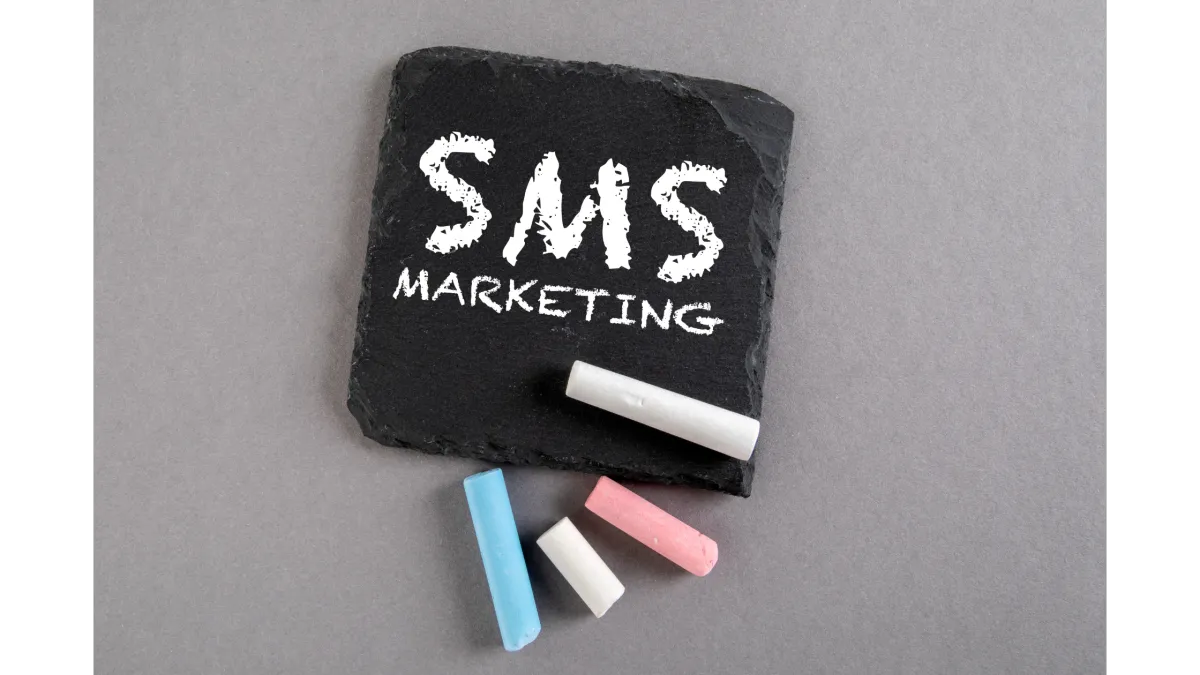Accelarix Blog
Unleash Your Business's Full Potential with Expert Insights.
Discover the strategies and tactics to gain an unrivaled competitive edge. Sign up for our complimentary newsletter.


Harnessing the Power of SMS Text Message Automation
Maximizing the Potential of Your SMS Text Message Survey:
Did you know that SMS messaging boasts an impressive 98% open rate? It has rapidly become a preferred method for businesses to engage with their customers. Leveraging this opportunity, companies are utilizing SMS text message surveys to gain a deeper understanding of their customers. In this blog post, we will explore the best practices to optimize your SMS surveys and the various scenarios in which they can be employed, enabling you to extract maximum value from this powerful tool.
Unlocking the Full Potential of Your SMS Feedback Campaigns:
SMS text message surveys offer a quick and cost-effective means of collecting valuable feedback from your customers. Research indicates that 48% of customers prefer direct communication with businesses via text messages, and SMS has a 209% higher chance of eliciting a response. These statistics highlight the value of SMS text message surveys and the willingness of customers to participate.
Typically, these surveys involve sending a trackable link and a text message to your audience using the SMS (short message service). The text message directs customers to the survey form where they can provide their responses. Alternatively, you can request customers to respond directly by providing an overall score and qualitative feedback via a text response.
To unlock the full potential of your SMS feedback campaigns and derive valuable insights from your customers, consider implementing the following tips:
Keep it Concise: Ensure that your SMS surveys are short and to the point. Lengthy surveys are less likely to receive responses due to time constraints. Additionally, longer surveys may introduce a higher non-response bias, potentially skewing your findings.
Include a Clear Call-to-Action: Enhance participation rates by specifying the purpose of the survey upfront and including a clear call-to-action (CTA) in your initial message. Encouraging recipients to engage and respond from the outset improves the likelihood of a meaningful response.
Timing is Everything: Select an optimal time to send your SMS surveys when people are more likely to respond. Consider after regular business hours when individuals are more relaxed or shortly after a successful purchase, delivery, or conversation.
Provide Incentives: Boost participation rates by offering incentives such as discounts, giveaways, or promotions. Incentives not only encourage engagement but also convey to customers that their time and feedback are highly valued.
Personalization Matters: Avoid a robotic and impersonal approach when asking for customer feedback. Personalize your surveys as much as possible by addressing recipients by name and tailoring questions to their specific interests and behaviors.
Use Clear and Simple Language: To ensure clarity and minimize misunderstandings, utilize simple and straightforward language that is easily understandable. Steer clear of technical jargon or complex phrasing. Additionally, incorporate both multiple-choice and open-ended questions to allow customers to share their experiences in their own words, providing more meaningful and detailed insights.
Track and Analyze Results: Track and analyze the results of your surveys to identify trends and patterns that can inform better decision-making. Leverage these insights to improve your products, services, or messaging. Create comprehensive reports and summaries that can be shared with your team.
Respect Privacy: Transparency is key when collecting customers' contact details. Clearly communicate how you collect and use this information, and provide individuals with the option to opt out of future SMS surveys. Seek permission and gauge interest in responding to future surveys, establishing a foundation of longevity for building a list of engaged customers willing to provide feedback on new product or service improvements.
SMS Text Message Survey Use Cases:
Customer Satisfaction Surveys: Gauge customer experience and satisfaction levels using a scale, typically ranging from 1 to 5. Assess quality, overall experience, and the likelihood of customer recommendations.
Market Research Surveys: Gather data about your target audience, including demographics, preferences, and opinions. Utilize SMS surveys to gain insights into how customers perceive your brand in comparison to competitors.
Feedback Surveys: Collect feedback regarding customer needs, preferences, and pain points. This valuable data helps improve your offerings. Implement feedback collection at various touchpoints in the customer journey, such as onboarding, customer service, payment, and delivery.
Employee Satisfaction Surveys: Gather feedback on working conditions, employee morale, and job satisfaction. Gain insights to improve employee retention and overall team happiness.
Event Feedback Surveys: Solicit feedback from event attendees to enhance future event planning and execution. Topics may include event location opinions, content quality, and overall attendee experience.
Net Promoter Score Surveys: Assess customer loyalty and measure the likelihood of customers recommending your business to others. This straightforward survey utilizes a scale of 1 to 10 to gauge recommendation probability.
Key Considerations for SMS Text Messaging Software:
When selecting SMS text messaging software to support your surveys, consider the following features:
User-friendly Interface: Choose software that is intuitive and easy to navigate, saving you time when composing and sending texts. Look for platforms that offer free templates to expedite the process.
Integration with Other Software: Ensure that the SMS text messaging software integrates seamlessly with your existing business software, such as your CRM system. This integration streamlines your workflow by automatically importing and syncing data across systems.
Segmentation and Targeting Capabilities: Opt for software that enables you to segment your contacts and create targeted campaigns. This customization increases engagement rates and delivers more relevant messages.
Automation: Look for SMS software that offers automation capabilities, such as scheduled messaging or triggered messages. These features save time and improve engagement rates.
Reporting and Analytics: Select software that includes robust reporting and analytics capabilities. Track metrics such as open rates, click-through rates, and response rates to optimize your messaging and campaigns.
Scalability: Choose SMS text messaging software that can accommodate your business as it grows. Look for features like team collaboration, higher messaging limits, and scalability options.
Compliance: Prioritize software that complies with local regulations and industry standards, such as the Telephone Consumer Protection Act (TCPA). Ensuring compliance helps you avoid potential fines and legal issues.
Frequently Asked Questions about SMS Text Messaging Surveys:
What is an SMS survey?
How much does a text survey cost?
Does Accelarix send text messages?
Conclusion:
Implement the power of SMS text message surveys to gain valuable insights and connect with your customers in a meaningful way. SMS surveys offer a convenient and cost-effective means of gathering feedback, and their high response rates make them a valuable tool for businesses. With Accelarix, you can send surveys via text, automate requests, track and analyze responses, and more. Don't miss out on the opportunity to optimize your customer engagement and drive actionable improvements with SMS text message surveys. Book a demo to learn more.



Headquarters
2200 NW Corporate Blvd, Suite 407, Boca Raton, FL 33431
Contact Sales: 561.589.2440
Subscribe to our social



Headquarters
2200 NW Corporate Blvd, Suite 407, Boca Raton, FL 33431
Contact Sales: 561.589.2440





